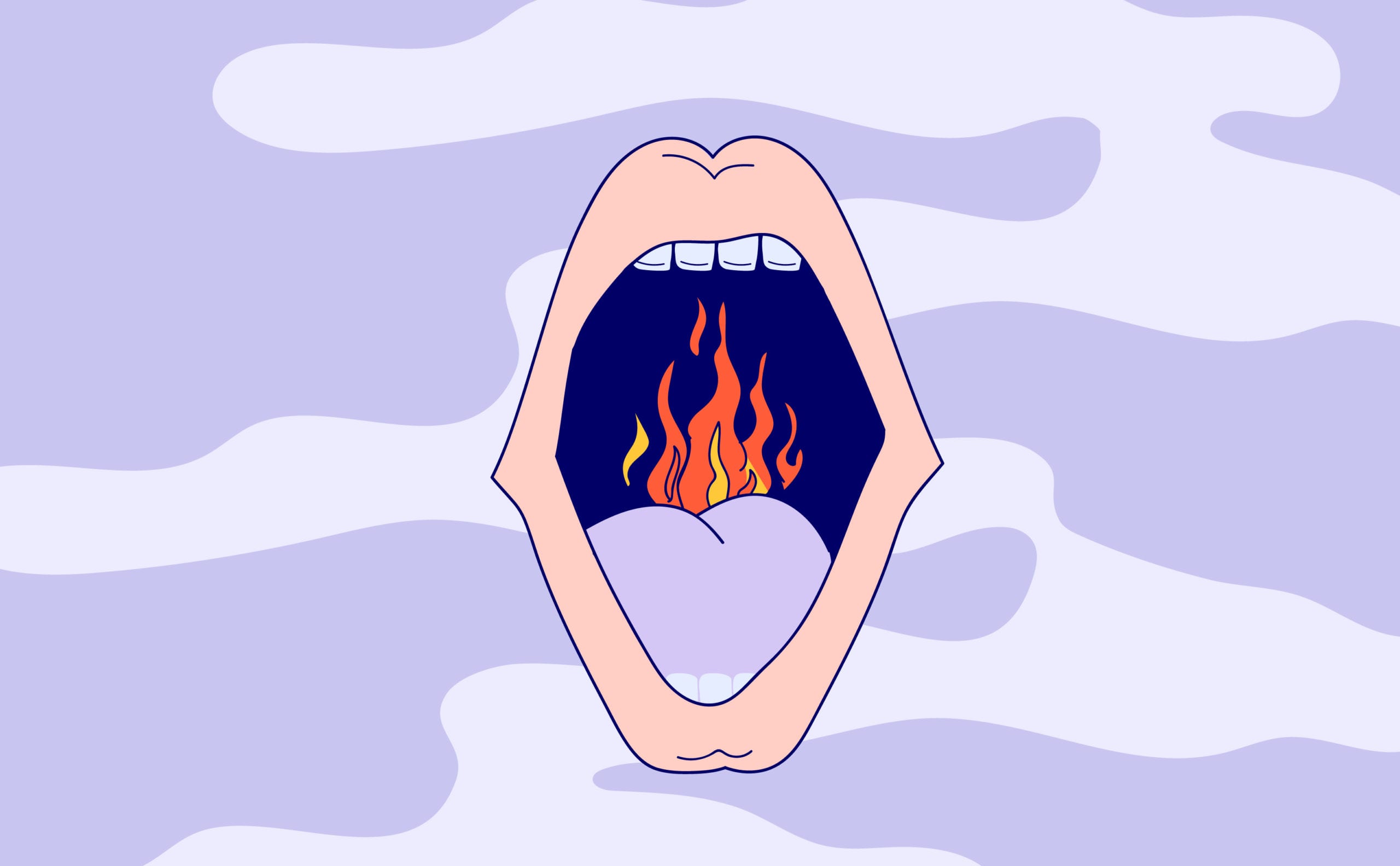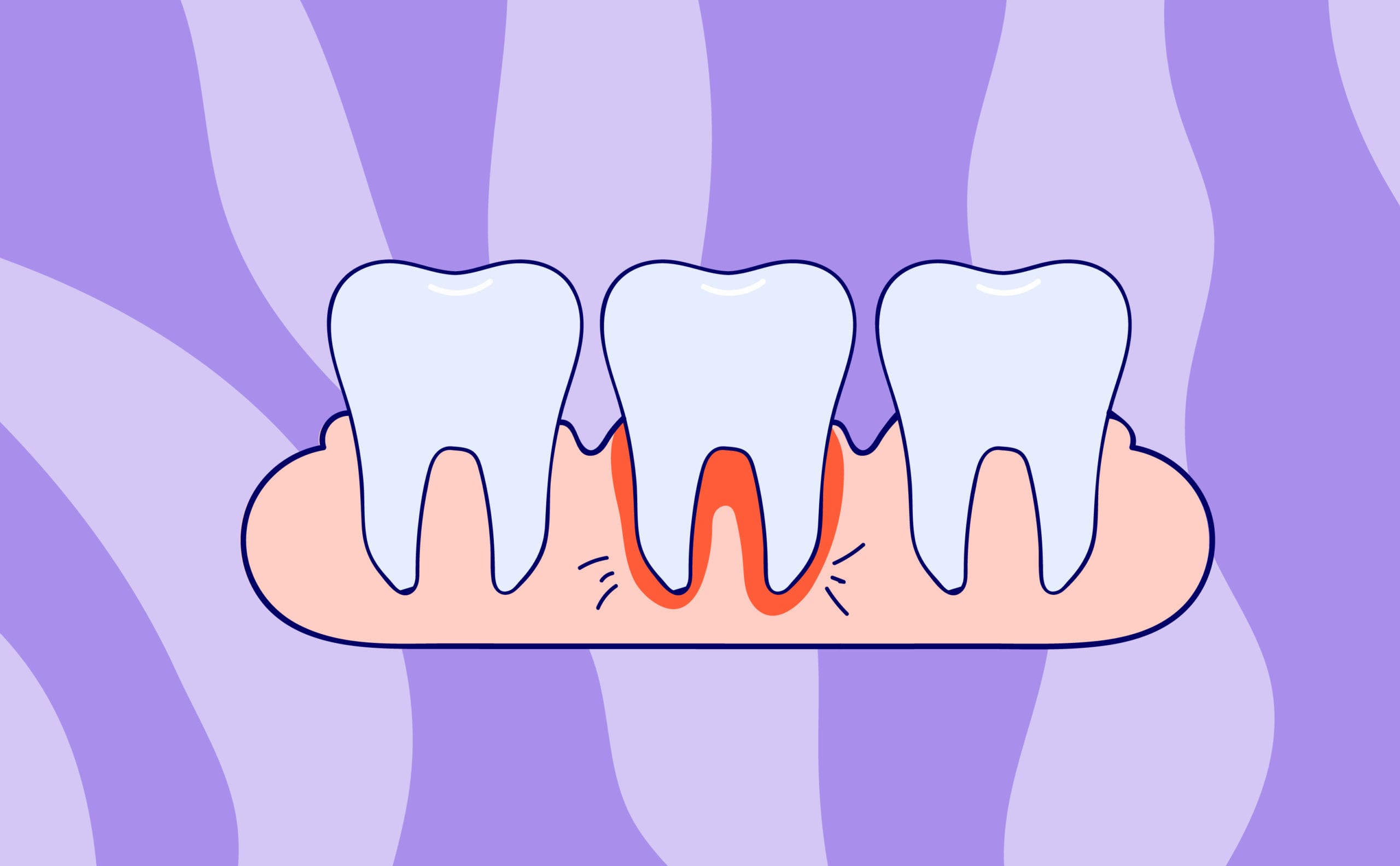According to the American Academy of Oral Medicine, BMS occurs in just about 2% of the population, making it a relatively rare syndrome.
Here’s the thing about BMS: when it comes to the science behind it, the jury’s still out. Doctors define it as “an intraoral burning sensation of idiopathic etiology occurring in the absence of identifiable oral lesion or laboratory findings,” which is essentially a souped-up way to say that your mouth burns for no identifiable reason or known cause.

Although there isn’t a universally accepted definition, scientists do know that the incidence rises in women aged 40-60, which correlates with the timing of perimenopause and menopause, but does not prove cause and effect. Specifically, we’re talking about a relationship with a drop in estrogen/oestrogen levels, as well as other fluctuations between adrenal, reproductive, and neuroactive (i.e. brain) steroids that influence the excitability of neurons. Simply speaking, the major hormonal fluctuations of the menopausal transition may somehow make our nerve cells more sensitive — the sensation we feel as pain.
Other proposed causes include allergies, chronic stress/anxiety, depression, and nutritional deficiencies — all of which may be related in some way, shape, or form to fluctuating hormone levels in menopause.
BMS symptoms generally come in packs of three.
- Mouth pain, which is commonly felt along the roof of the mouth, tongue, and lips and is exacerbated by the consumption of hot/spicy food, too much speaking, and stress
- Alteration in taste (aka dysgeusia), which is present in up to 70% of cases and leads to a bitter or metallic taste in your mouth
- Reduced saliva production, which causes a dry mouth feel
The pain can be gradual and random or sudden and targeted to a specific event. Generally speaking, women find that the burning sensation is mild upon waking up, only to intensify with the first meal of the day and reach its max by late evening. For this reason, some women report that BMS makes it difficult for them to fall asleep and may cause them to wake up occasionally throughout the night.
In cases of what’s called Secondary BMS, symptoms are caused by a specific, underlying medical condition — e.g., acid reflux, dry mouth, or a mouth infection — in which case your doctor will likely address that first. (Primary BMS, on the other hand, has no identifiable cause.)
If you’re experiencing a painful, burning mouth and you also have vaginal pain, the cause could be an autoimmune disorder called lichen planus (lie-lun play-nus). Affecting approximately 2% of the entire population (but skewing towards menopausal and postmenopausal women 50+), lichen planus causes inflammation in the skin and mucous membranes, which can lead to chronic pain in the vagina and mouth.
Learn More
Guide to Burning Mouth Syndrome (Oral Health Foundation)
Burning Mouth Syndrome symptoms, causes, & diagnosis (Mayo Clinic)
Pro tip #1
Pro Tip #1
It's not uncommon for people diagnosed with this syndrome to have a dry mouth with feelings of extreme thirst as well as the inability to taste. Staying hydrated is important, and using lozenges or Xyla Mints can help too.




